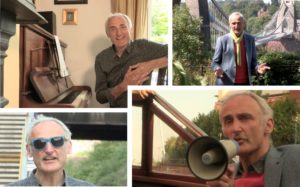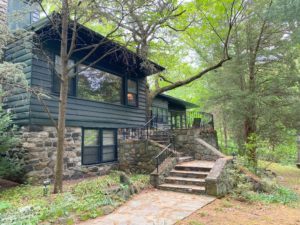
2020 is the 120th anniversary of Aaron Copland’s birth and the 30th anniversary of his death. In addition, it’s the 75th anniversary of the premiere of Appalachian Spring and also happens to be the year I celebrate my 50th birthday! As a result of all this I have decided to mark these landmarks by Tweeting everyday through my Music Copland account about an individual piece that Aaron Copland composed. Over the 366 days of the leap year I will introduce every published piece and provide my choice of the best recording and/or a link to a performance on YouTube.
The dates have been chosen relating to the birthday of the dedicatee of the work or the performer involved (be they the musician, poet, ballet dancer or film actor). Some have been chosen to coincide with the anniversary of the date that a work was premiered whilst other correspond with national and international days of celebration or remembrance.
I’ve had a blast working all this out and found out some interesting things along the way.
For instance, the date of the premiere of the Appalachian Spring ballet (30 October 1944) also happened to be the birthday of the Elizabeth Sprague Coolidge whose Foundation supported the work. The only other Copland work commissioned by Coolidge (Piano Quartet) received its premiere on 29 October 1950!
Both William Wyler, who produced and Olivia de Havilland, who starred in the Heiress film (the only film score that Copland won an Oscar for) shared the same birthday (July 1).
Similarly, the ‘Cowboy’ composer Roy Harris had the same birthday as Abraham Lincoln, the 16th President of the United States (12 February). As Copland and Harris had a frequently testy/frosty relationship in later years, the popularity of Copland’s Lincoln Portrait no doubt grated on Harris. This work was premiered in May 1942 and in June of the same year Harris wrote to Copland and accused him as follows
“What diabolical plan have you up your sleeve now to scoop all my small public away from me – what there is left”
I think there is a very good argument for cause and effect. Your honour, I rest my case!
Perhaps most interestingly, the date of Emily Dickinson’s death (15 May) also happened to be the birthday of Arthur Berger (a fellow composer of Copland’s). The reason that this is so compelling to me is that Copland dedicated the final piece of the 12 Poems of Emily Dickinson (The Chariot) to Berger. The poem which starts with the immortal lines
“Because I could not stop for Death
He kindly stopped for me
The carriage held but just ourselves
And Immortality”
is the perfect culmination of the song cycle. The matching of the dates may be sheer coincidence but I somehow doubt this.
I look forward to engaging with you on Music Copland and taking you on s ‘waltz and celebration’ through the works of Aaron Copland. It promises to be a fantastic mix tape which should introduce some old favourites and many (in my opinion) neglected masterpieces to a wider audience. I hope you choose to follow me on Twitter and enjoy a daily dose of inspiration from the Dean of American Composers. Happy New Year!









Leave a Comment